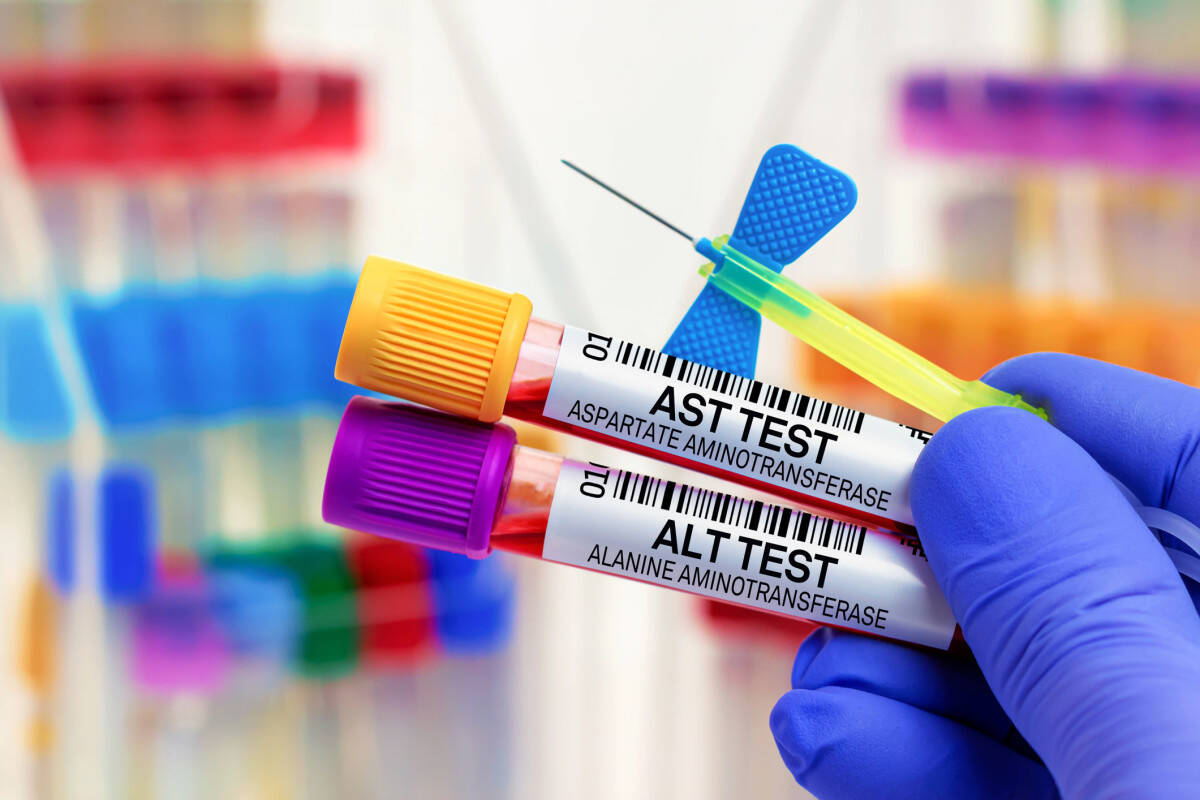What happens if your liver enzymes are too high?
When it comes to most body parts, if there’s a problem, you know it. If a bone breaks, you feel it. If your gut becomes inflamed, you can expect some unpleasant gastrointestinal symptoms.
But your liver is a little trickier. Though it’s a critical organ responsible for filtering out harmful substances from blood, producing bile, and key for metabolizing nutrients (just a few of its many roles), it isn’t always apparent when something is wrong with it.
One sign of poor health is elevated liver enzymes. These are proteins made by the liver that speed up chemical reactions in the body. Bile production, fighting infection, blood clotting and breaking down food and toxins are all examples of the types of chemical reactions involving liver enzymes.
Why are elevated liver enzymes a red flag that shouldn’t be ignored? Here’s what a couple of doctors had to say.
Causes and consequences
Essentially, when your liver enzymes are too high, it’s an indicator that your liver isn’t functioning properly, and you need to take action.
“Elevated liver enzymes are a common finding on blood tests. These enzymes, mainly called AST and ALT, are proteins made by the liver. When the liver is stressed or damaged, these enzymes can leak into the blood,” says Dr. Treta Purohit, a gastroenterologist and the medical director at Oshi Health.
There are several reasons why liver enzymes can become elevated, Purohit explains. She says the most common reasons are nonalcoholic fatty liver disease (which affects 1 in 4 people in the U.S.), alcoholic liver disease, and viral infections such as hepatitis B or C.
Some over-the-counter drugs (acetaminophen), prescription drugs and supplements can also cause elevated liver enzymes, Purohit says. It’s important to remember the majority of herbal and dietary supplements are not tested for safety. Studies found many bodybuilding products and green tea extract supplements have been linked to liver damage.
Dr. Jean-Pierre Raufman, the chief of gastroenterology and hepatology at the University of Maryland Medical Center, says cholesterol-lowering medications can also cause elevated liver enzymes. If you take them, he says, it’s best to get blood work done periodically to make sure your liver enzyme levels stay in check.
“Several liver enzymes are commonly tested in routine blood panels. Elevation in some liver tests indicates damage to liver cells themselves, whereas elevation in others indicates damage to the cells lining the bile ducts leading from the liver to the gallbladder, perhaps in someone with gallstones,” Raufman explains.
In either case, it’s a red flag that something isn’t right.
Both doctors say people often have no idea their liver enzymes are elevated because they aren’t experiencing symptoms.
“Elevated liver enzymes are a common finding — and often a silent one. As a gastroenterologist, I remind patients that these enzymes are not a diagnosis, but a signal that something may be affecting the liver,” Purohit says.
Both doctors say the only way to know if liver enzyme levels are too high is through blood testing.
Treating elevated enzymes
Say your blood work indicates your liver enzyme levels are too high. What now?
Both doctors emphasize it’s important to figure out the cause and go from there. That might mean additional tests.
“The liver can compensate for damage for years, so even those who feel completely well may still have underlying issues. A thorough evaluation considers the whole picture: metabolic health, alcohol use, medications, supplements and family history,” Purohit says.
If the cause of elevated liver enzymes is nonalcoholic fatty liver disease, Purohit says, the prescription will probably involve changes in dietary and lifestyle habits.
Raufman echoes this, adding that a doctor may prescribe a GPL-1 medication if obesity or Type 2 diabetes is a contributing factor.
If the cause is linked to a specific medication or supplement, Purohit says, the fix will be to stop taking it and switch to a new medication, if needed.
“Patients with severe or persistent elevations, or signs of advanced liver disease, should be referred to a specialist for further evaluation and possible liver biopsy. In all cases, ongoing monitoring of liver enzymes and liver function is important to assess response to treatment and detect progression,” she adds.
Here’s the good news: Many liver conditions are reversible with early action and lifestyle changes, Purohit says.
“If elevated liver enzymes are found, speak with your doctor and consider a referral to a specialist. Early detection and the right care can make all the difference,” she explains.
Consider this a sign not to skip your annual checkups and routine blood work. It could catch an underlying health issue you otherwise would have missed.



















